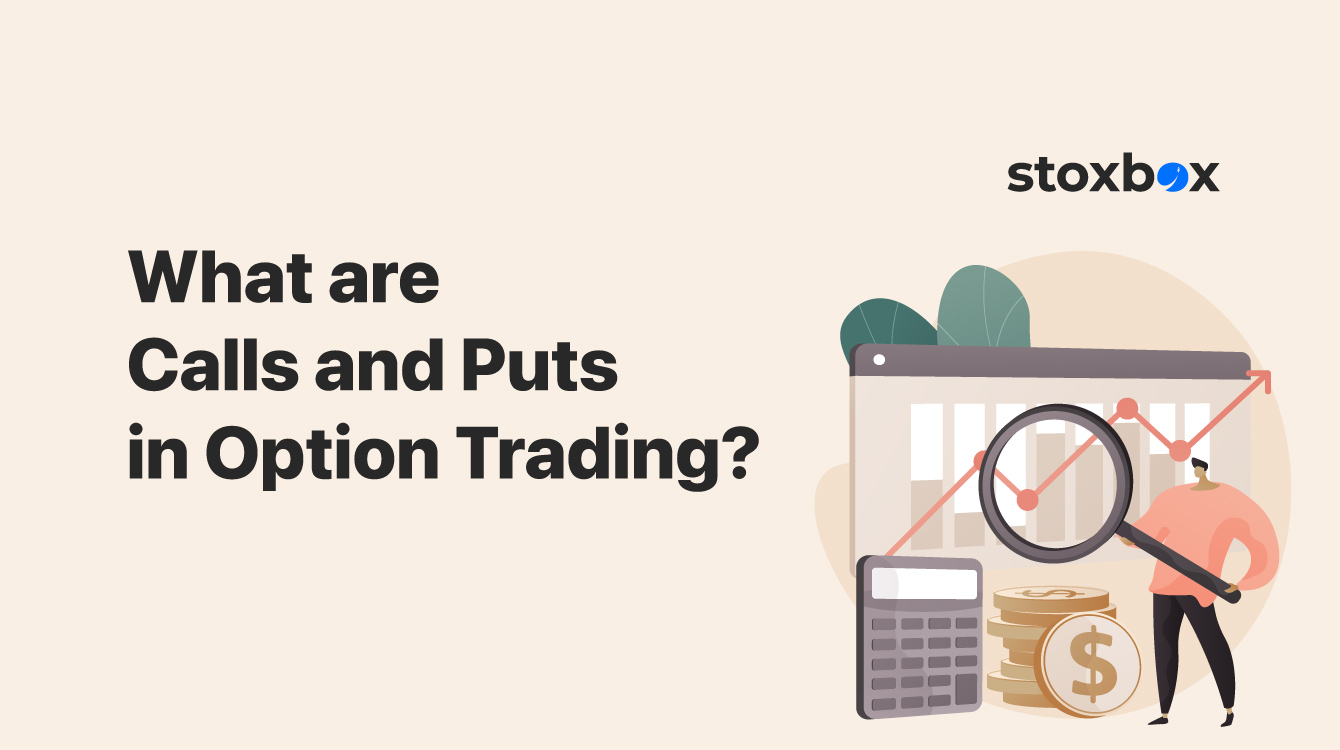Concept of Call and puts in option trading and its effect on market
Table of Contents
What are Calls and Puts in Option Trading?
Investing may seem like a complicated ecosystem for newcomers in the field as it encompasses a variety of different aspects and features. Even as it takes people time to master the nitty gritty of basic investing, the issue of derivatives comes to the fore, making the entire equation more complex. Many of you may wonder what are calls and puts in options trading? Here is a simple primer to understand the basic aspects of options trading and help you decide whether it is the right time for you to try your hand at this investment tactic.
Derivatives and Options

Diversification is considered the first and most important rule of investing and you can allocate your corpus to a variety of assets like equities, debt, gold and real estate. Among equities, there is a sub-category called options and, when utilised wisely, options trading can offer you a variety of advantages and the ability to realise strong returns. In simple terms, an option is a contract which offers parties the right, but not the obligation, to buy or sell the underlying asset, at the pre-decided price, on or before the previously stipulated time. Options trading is used as a way to make returns from speculation and to hedge the potential risk in a futuristic trade setup.
Options are a part of the derivative market, just like futures and forwards. These sub-categories are called derivatives because they derive their value from the value of the underlying asset. Option contracts may be created for all forms of securities, be it equities, commodities, debt or even currencies as the principle behind the contract remains the same. Derivatives offer investors a way to try out their luck or instinct at speculation over a period of time. For instance, if you believe that the price of Infosys shares will rise by 150 rupees, over the next one month, you can enter an options contract which offers you the option to purchase Infosys shares at today’s price, on a date which is one month from now. This will help you realise gains of 150 rupees per share, in a month from today, and you don’t even have to actually purchase the shares at today’s price.
What are Calls and Puts in Options Trading?
To answer the common question of what are calls and puts in options trading, let us continue with the example above. You believe that the price of Infosys shares will rise a month from now, so you invest in an options contract, choosing the call option. This ensures that you, the buyer, have the right, but not the obligation, to purchase the shares at today’s price, any time between today and the pre-decided date which is one month from today. Choosing the call option allows you to hedge your risk because, if the price of Infosys does not end up rising, or actually drops below your expectation, you will not be forced to go through with the trade.
On the other hand, if you enter the options contract with the put option, the seller will have the right, but not the obligation, to sell the stocks at the pre-decided price, any time before the pre-decided date. Therefore, the put option will force you to purchase the stocks even if you do not wish to go through with the trade, putting you at a disadvantage if you are not sure that your bet will play out in your favour. Therefore, it is clear that options trading involves some risks which you should be aware of before entering a contract. While options offer you more flexibility than futures and forwards contracts, you should still be very cautious of the position you take, to avoid unnecessary risk and loss of wealth.
As with every aspect of the market, options trading also involves risk but, with high risk you can look forward to high returns, if your speculation proves to be right. Since option contracts constitute a complex category of the market, it is advisable that new investors and inexperienced players remain cautious and maintain a safe distance from the segment. However, if you have a strong knowledge of the market, have a high risk appetite and feel that you can time the market to your benefit, then options trading can be a highly favourable possibility for you.
Many investors have successfully used options as a way to enhance their portfolios while also creating a source of added income and protection. If you take the right call, options trading can help you hedge your positions and mitigate losses in the market. Since you have the choice of picking either the put or call option, based on your requirements, you can choose the best option to realise potential gains and benefit from astute options trading.
You might also Like.
No posts found!
